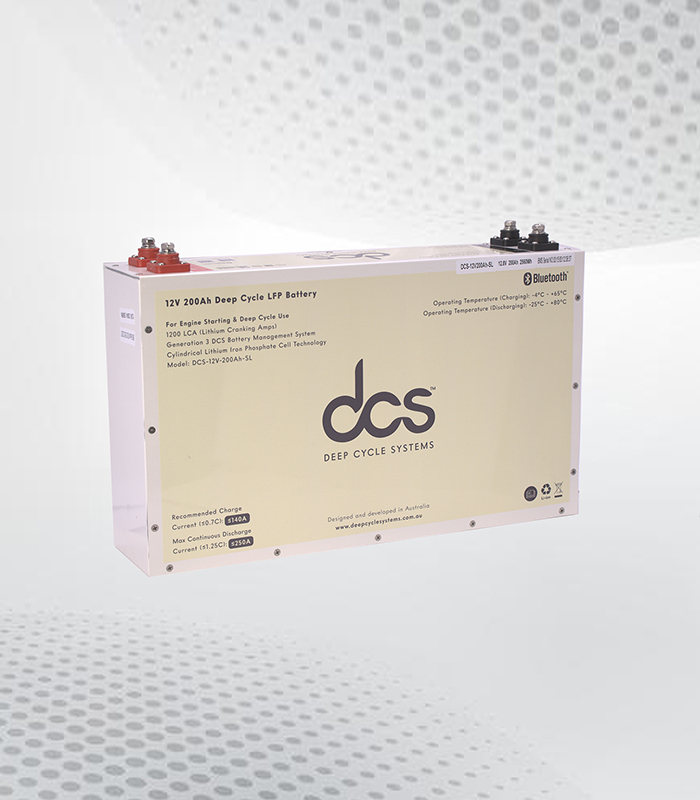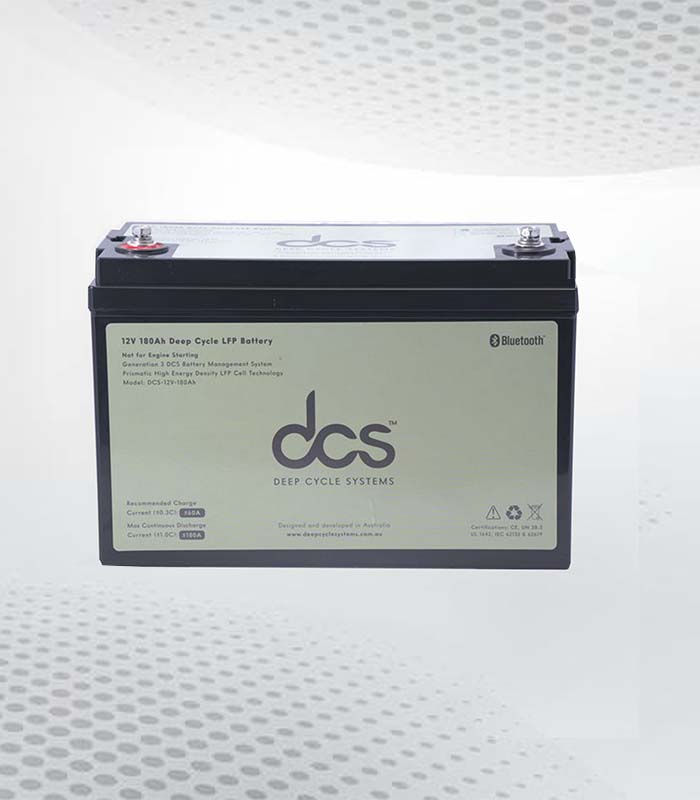A 12-volt, 180Ah battery is a reliable choice for powering your adventures. Whether you’re RVing, sailing the high seas, or camping under the stars, maintaining this powerful battery is critical to ensuring its longevity and performance. But how can you keep it running smoothly? Proper maintenance can significantly extend the life of your battery, saving you time and money. In this guide, we’ll explore essential tips and tricks that will help you maximize your battery’s efficiency and avoid potential problems.
The Ultimate Guide to Extending the Life of Your 180Ah Battery
To extend the life of your battery, you need to start by understanding its specific needs. Regular monitoring ensures that problems are detected early. By keeping an eye on voltage levels and overall performance, you can prevent unexpected failures from occurring while you enjoy your adventures.
Proper charging is another crucial factor. Use a compatible charger and try to charge slowly to avoid damaging the battery cells. This technique not only improves longevity but also ensures optimal performance during use.
Routine maintenance tasks, such as checking terminals for corrosion and ensuring proper connections, significantly extend battery life. A little attention goes a long way to keeping your battery in good shape, allowing you to focus more on making memories instead of worrying about power outages.
How to keep your 180Ah battery in good condition: Do’s and don’ts for maintenance
Battery maintenance is critical to maximizing battery life. Start by periodically checking the battery terminals for corrosion. Gently clean them with baking soda and water to ensure a good connection. A clean connection can prevent power loss and extend battery life.
Avoid fully discharging your battery. Deep discharges can damage the internal structure and reduce capacity over time. Instead, try recharging your battery when it reaches about 50% capacity. This practice keeps your battery healthy and ready to use.
Do not expose the battery to extreme temperatures or direct sunlight for extended periods. High heat can cause water in flooded batteries to evaporate, while freezing conditions can significantly impair performance. Keeping the environment stable will help maintain optimal operation and longevity of your 180Ah battery.
Maximizing performance: routine checks for your 180 Ah battery
Routine checks are essential to maintaining optimal battery performance. Start by inspecting the terminals for corrosion or dirt. Clean them with a mixture of baking soda and water, making sure the connections are tight. Loose terminals can cause voltage drops, which reduces efficiency.
Next, check the electrolyte levels if you have a flooded lead-acid battery. Low levels can damage the battery and affect performance. If necessary, top up with distilled water, but avoid overfilling. This simple step can significantly improve longevity.
Check the overall condition of your battery case for cracks or leaks. Any signs of wear could indicate deeper problems that require attention before they become more serious issues. Performing these routine checks will help maximize the life and reliability of your 180Ah battery.
Charging Techniques: How to Properly Charge Your 12V 180Ah Battery
Proper charging techniques are essential to the longevity of your 12V 180Ah battery . Start with a quality charger designed specifically for this type of battery. Look for smart chargers that automatically switch to maintenance mode once the battery reaches full charge, preventing overcharging and damage.
Always follow the manufacturer’s recommended charging current and voltage settings. Charging at too high a rate can cause overheating, while charging too slowly may not efficiently bring the battery to optimal levels. Monitor the process closely, especially during initial charges.
Consider using a multi-stage charger with different phases: bulk, absorption, and float charging. This approach maximizes capacity and ensures safe operation throughout the cycle. Adopting these best practices for charging your battery can significantly improve performance and extend its life.
How to avoid common mistakes: what not to do with a 180 Ah battery
One of the biggest mistakes you can make with your battery is over-discharging it. If you allow the battery to drop below its recommended voltage, it can cause irreversible damage. Constantly monitor its usage and recharge it before it drops too low.
Another common mistake is not taking extreme temperatures into account. Batteries are sensitive to heat and cold, which affects their performance and lifespan. Avoid exposing the battery to high temperatures or freezing conditions for extended periods.
Don’t ignore maintenance checks. Skipping routine inspections may seem harmless, but it can lead to problems like corrosion or loose connections. Periodically inspect terminals and wires for wear, making sure everything is secure for optimal operation.
Temperature Control: How the Environment Affects 180Ah Battery Life
Temperature plays a crucial role in battery performance and lifespan. Extreme heat can cause internal components to degrade faster, reducing capacity and increasing the risk of failure. In hot conditions, it is essential to closely monitor the battery.
On the other hand, cold temperatures can also be detrimental. When exposed to freezing conditions, chemical reactions slow down significantly, reducing power output. This means you may not get the full capacity of your battery when you need it most.
To prolong battery life, try to store it in moderate environments. Ideally, keep the 180Ah battery within a temperature range of 32°F to 77°F (0°C to 25°C). If you cannot avoid using it outside this range, consider insulation or heating solutions that help maintain stable temperatures during use or storage.
Cleaning and maintenance: How to keep your 180 Ah battery in top condition
Keeping your battery clean is critical to its performance and longevity. Dirt, grime, and corrosion can build up on the terminals over time, leading to poor connections. Inspect these areas regularly and use baking soda and water to gently remove any buildup.
After cleaning, dry the terminals thoroughly before reconnecting them. A protective spray or terminal grease can also help prevent future corrosion. This simple step improves conductivity and keeps the battery running smoothly.
Also remember the surrounding area; dust and debris can obstruct airflow around the battery. Keeping this space clear allows for better ventilation, which helps maintain optimal temperature conditions during operation.
Storage Tips: How to Safely Store Your 180Ah Battery When Not in Use
Choose a dry and excellent location to store the battery. Avoid direct sunlight and humid areas to prevent damage. A temperature range of approximately 32°F to 77°F is ideal for maintaining battery health.
Before storing the battery, make sure it is fully charged. This helps prevent sulfation, which can occur if a lead-acid battery is discharged too much. Also, disconnect any devices or cables connected to the battery to prevent parasitic discharge.
Understanding Battery Chemistry: How to Care for Your 180Ah Battery
Battery chemistry plays a critical role in battery performance and longevity. Typically, these batteries are lead-acid batteries, which rely on chemical reactions between lead plates and sulfuric acid to store energy. Understanding this chemistry can help you take better care of your battery.
Maintaining proper electrolyte levels is essential for optimal health. If the fluid level drops below a safe level, it can damage internal components. Check and refill with distilled water as needed regularly – this simple step goes a long way.
Another important aspect is to always avoid deep discharges. Lead-acid batteries work best when kept above a certain charge level; letting them drop too low can significantly reduce their lifespan. By adhering to these basic principles of battery chemistry, you will ensure that your 180Ah battery remains reliable for many years to come.
Battery Health Monitoring: Tools and Techniques for Your 180Ah Battery
Monitoring the condition of your battery is critical to its longevity and performance. One effective tool you can use is a digital multimeter, which measures voltage and helps identify any irregularities. Regular checks with this device can ensure that your battery remains within safe operating parameters.
Another useful tool is a hydrometer, especially for flooded lead-acid batteries. This instrument provides information about the specific gravity of the electrolyte solution, which indicates the state of charge. By keeping an eye on these readings, you can tell when the battery needs recharging or maintenance.
Optimizing discharge cycles: how to efficiently use your 180 Ah battery
To use your battery efficiently, you need to have a clear understanding of its discharge cycles. Ideally, you should avoid deep discharges that can wear down your battery over time. Aim to use only 50-80% of its capacity before recharging. This practice helps extend overall battery life and maintain optimal performance.
Time is another critical factor in optimizing discharge cycles . Try to monitor your usage patterns and recharge the battery during off-peak hours whenever possible. Charging the battery regularly after partial discharges can improve its health and ensure it is always ready for action.
The importance of periodic inspections for your 12v 180ah Battery
Regular inspections are essential to maintaining the health of your 12v 180ah Battery . Like any other equipment, batteries can develop problems that may go unnoticed. A simple visual inspection can help you detect corrosion, leaks, or any physical damage before they become larger problems.
It’s also critical to listen for unusual sounds during operation. Any unusual noises could indicate a malfunction or internal damage. Inspecting the battery terminals and connections ensures everything is tight and secure, minimizing circuit resistance.
Additionally, routine checks allow you to monitor fluid levels if your battery requires maintenance. Keeping an eye on these parameters will allow you to make informed decisions about when to charge or service your battery. Regular inspections allow you to know its current condition and performance capabilities.
Conclusion
Maintaining your 12-volt 180Ah battery is essential to ensuring its longevity and reliability. Proper care can make all the difference in performance, especially when you rely on it for crucial applications. By following the guidelines, you can significantly improve the life of your battery. It’s all about understanding your battery’s needs and proactively addressing them. Investing time in routine maintenance pays off. Your efforts today will result in a more efficient and reliable power source tomorrow.
Frequently Asked Questions
What is the lifespan of a 12 volt 180 Ah battery?
The lifespan of a 12-volt 180Ah battery can vary depending on usage and maintenance. With proper care, these batteries typically last between 5 and 10 years. Factors such as charging habits, temperature exposure, and discharge cycles significantly determine longevity.
How often should I check the charge status of my battery?
It is recommended to check the battery charge status at least once a month. This ensures that you are aware of its performance and can make any necessary adjustments. Regular monitoring helps prevent over-discharging or under-charging, which can significantly affect overall health.
Can I use any charger for my 180Ah battery?
Only some chargers are suitable for some types of batteries. Always choose a charger designed for your battery type (lead-acid or lithium-ion) to ensure safe and efficient charging practices. Using an incompatible charger may damage the battery or drastically reduce its lifespan.
| Related Business Listings |
| Directory Submissions |
| Regional Directory |




